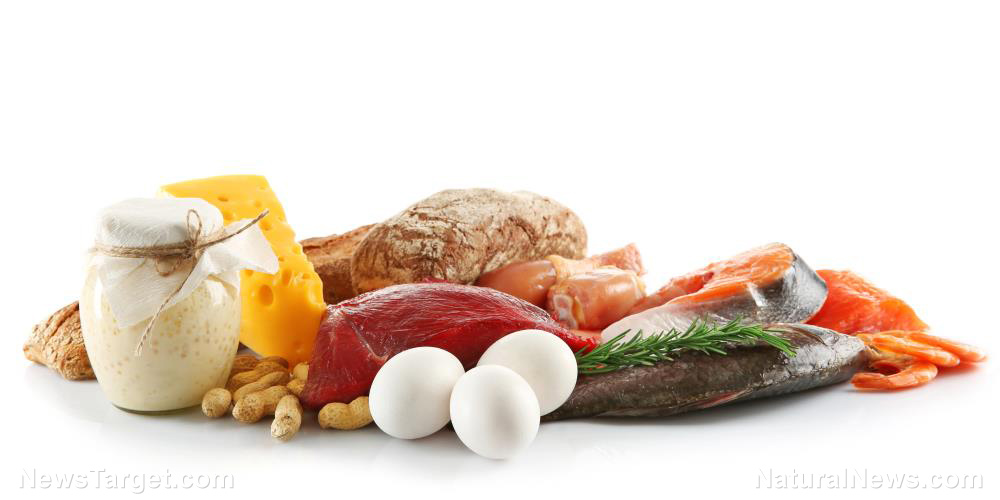
Advertisement
If you’re looking for a way to achieve optimal liver health, why not try adopting the Mediterranean diet?
This is according to a review conducted by a team of researchers from Isfahan University of Medical Sciences in Iran. In this study, the researcher found that the Mediterranean diet can help improve metabolic parameters related to non-alcoholic fatty liver disease (NAFLD) such as lipid profile, liver enzyme and glycemic indices.
The researchers arrived at this conclusion after reviewing 10 randomized controlled trials detailing the effects that the Mediterranean diet had on a total of 854 adult participants with NAFLD over the course of ten years.
According to the researchers, the results of the study prove that the Mediterranean diet can help address problems related to NAFLD.
What is NAFLD?
NAFLD is defined by the American College of Gastroenterology as the accumulation of excess fat in the liver of people who drink little to no alcohol. This disease affects 30 to 40 percent of adults in the United States.
The disease is mainly associated with insulin resistance, dyslipidemia, obesity, and glucose intolerance which are the main features of metabolic syndrome.
According to experts, NAFLD can be caused by the following factors:
- Oxidative stress
- Production and release of toxic inflammatory proteins such as cytokines
- Liver cell necrosis
- Adipose tissue inflammation and infiltration by white blood cells
- Gut microbiota which may play a role in liver inflammation
What is the Mediterranean diet?
The Mediterranean diet is based on the traditional cuisine of countries bordering the Mediterranean region.
The Department of Health and Human Services’ Dietary Guidelines for Americans recommends the Mediterranean diet as a healthy eating plan that promotes health and helps prevent chronic disease. The Mediterranean diet is also recognized by the United National Educational, Scientific and Cultural Organization (UNESCO) as an “intangible cultural asset.”
Interested in trying the Mediterranean diet? Here’s what you’ll find in a typical Mediterranean meal:
Healthy fats
Healthy fats are a mainstay of the Mediterranean diet. These include organic avocado oil, extra virgin olive oil and organic seeds and nuts. They’re eaten instead of less healthy fats, such as butter and margarine, which are known to contain saturated and trans fats, which contribute to heart disease.
Among these oils, olive oil is considered to be the healthiest, with the oil acting as a good source of monounsaturated fat. Monounsaturated fats, according to experts, have the ability to lower your total cholesterol and low-density lipoprotein (LDL) or “bad” cholesterol levels, making them incredibly helpful to your fitness journey.
Fatty fish
Fatty fish, such as mackerel, herring, sardines, albacore tuna, salmon and lake trout, are also considered to be a major part of the Mediterranean diet. As noted by experts, this is because fatty fish are a rich source of omega-3 fatty acids.
Omega-3 fatty acids are a type of polyunsaturated fatty acid that has been linked to several health benefits and are known to reduce inflammation and lower triglyceride levels in the body, as well as reduce blood clotting, and decrease your risk of stroke and heart failure.
Organic fruits and vegetables
The Mediterranean diet is quite heavy on vegetables, particularly the non-starchy ones like the following:
- Artichokes
- Cabbage
- Beets
- Broccoli
- Cauliflower
- Carrots
- Tomatoes
- Eggplants
- Onions
- Asparagus
- Green beans
- Zucchini
- Brussels sprouts
- Turnips
- Peppers
- Salad greens
- Mushrooms
These vegetables are all full of vitamins and minerals, as well as phytonutrients and antioxidants that are known to support your overall health.
Fruits such as apples, bananas, oranges, pears, strawberries, grapes, dates, figs, melons, and peaches are also a major part of the Mediterranean diet, with experts noting that 4 to 5 servings of fruit would be considered “optimal.”
As noted by dietitians, fresh fruits are preferred because of the fiber that they have. If you don’t have any fresh fruits, fruits canned in light syrup or their own juice, and frozen fruit with little or no added sugar are also a good choice.
Other tips for those who wish to try the Mediterranean diet include the following::
- Reduce your consumption of red meat.
- Add some dairy in the form of low-fat Greek or plain yogurt and small amounts of a variety of cheeses.
- Spice up your dishes! Herbs and spices can help boost your meals’ flavors and lessen the need for salt.
In addition, those who follow the Mediterranean diet also consume red wine in moderation, as well as engage in moderate physical activities.
The Mediterranean diet is one of the healthiest diets in the world and has even been found to benefit the body’s major organs–including the liver.
Not only that, but its non-restrictive nature makes it one of the easiest diets to follow, which makes it especially appealing to those who want to give healthy living a try.
Do note, however, that you still have to consult with your nutritionist and your medical care provider before you start following a new eating plan.
Sources:
UWHealth.org[PDF]
Advertisements







